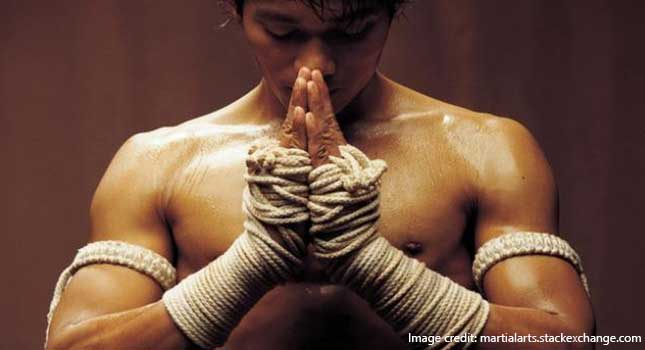Gratitude has a strong role to play in addiction recovery. It naturally arises when you overcome addiction, and it strengthens your resolve from day to day. We examine this phenomenon and explore some ways in which you can cultivate a daily gratitude practice.

Sharelines
- Let gratitude be the pillow upon which you kneel to say your nightly prayer. — Maya Angelou
- Gratitude has a strong role to play in addiction recovery. Learn how you can cultivate a daily gratitude practice.
There’s a great deal of talk in addiction recovery circles about the importance of gratitude. Many people in recovery have found that a sense of gratitude can help them stay the course, resist relapse and ultimately enjoy their sober life. In other words, gratitude strengthens their resolve.
Given the powerful role that gratitude plays in recovery, the addiction treatment specialists at The Edge work with our clients to help them cultivate gratitude in their daily lives. In this post, we’ll take a closer look at the role this state of mind plays in recovery and offer insight into how you can cultivate gratitude in your day-to-day life.
How Does Gratefulness Play into Recovery?
Once they embark on a new journey of addiction recovery, many find themselves overwhelmed with emotions and unfamiliar states of mind. The earliest days of addiction recovery can be an emotional roller coaster – one that most are relieved to move on from once they establish a more stable state of mind. But as overwhelming as this surge of emotions is, some of the responses you experience are worth hanging onto.
When you come to terms with the devastating effects that your addiction had on those who care about you, you’re likely to experience shame. You will realise how much these people sacrificed on your behalf. Once that sinks in, you’ll feel profoundly grateful that these loved ones stuck with you and continued to show you love in spite of your addiction.
For most people in recovery, there will also be people who were instrumental in helping them make the transition to clean and sober living. These could be addiction counsellors, members of their group therapy sessions or a mentor with many years of recovery behind them. It suddenly becomes clear that you owe so much to so many other people who gave of themselves when they didn’t have to. Gratitude is a natural and appropriate response.
And it doesn’t stop there. Gratitude also takes on larger, more abstract dimensions. The intense relief of realising that you no longer have to live in the throes of addiction feels like a gift. No one gave this gift to you; if anything, you alone are responsible for this. Even so, when you’re in recovery, you can’t help but feel grateful for the new life you’re living.
Gratitude Is More Than an Emotion – It’s a State of Mind
We often talk about gratefulness and gratitude as if they’re feelings. We feel grateful when a person cares for us or offers assistance. Thankfulness can come across as an emotional response. And while it’s certainly true that gratitude does have an emotional component, it is not – strictly speaking – an emotional response.
Real gratitude is a state of mind. It’s something you can intentionally cultivate in your daily life. Consider the fact that many cultures have a Thanksgiving-style holiday when celebrants actively and intentionally exercise gratitude in the presence of others. If gratefulness were strictly emotional, then it would arise spontaneously, and there would be no point in setting aside a day to experience this feeling.
In that sense, most people are at least partially aware that feeling grateful is as much an exercise as it is a feeling. By keeping this principle in mind, you can learn to exercise this discipline as a means of strengthening your own recovery.
How to Cultivate Appreciation in Your Daily Life
Maintaining a grateful heart will strengthen your resolve and help you to renew your recovery on a daily basis. Here are a few tips for cultivating a sense of gratitude in your own life:
- Pause to consider and admire the beauty in the world around you.
- Let those who are important to you know that you care about them.
- Spend time volunteering in your local community.
- Check the impulse to complain, and try to find a silver lining.
- Say ‘thank you’ to the people who serve you, even if it’s their job (i.e. they’re being paid) to do so.
- Set aside time to practice gratefulness each day; consider reinforcing this by keeping a gratitude journal where you can note the things you’re thankful for.
- Release yourself from the past, and embrace the simple joys of the moment.
- Spend more time with the people you care about most.
- Intentionally refrain from gossip and negative talk about others.
- Practice small acts of kindness on a daily basis.
If you make a point of practicing gratitude each and every day, these practices will become habits. What’s amazing is that this is actually effective in cultivating a sense of gratefulness. This state of mind can be intentionally engineered, so to speak, but it isn’t fake or false. On the contrary, you’ll find that this new way of living feels intensely authentic – and this will only reinforce your resolve to maintain your recovery over the long term.
The Edge Can Help You Foster Gratitude in Recovery
At The Edge rehab centre, we have seen first-hand what an important role gratitude plays in the recovery process. This is why we work so hard to help our clients learn to cultivate and embrace this state of mind. This begins in our one-on-one counselling and group therapy sessions, during which time we explore precisely what it is that we have to be grateful for.
It’s truly amazing to see the transformation that ensues when our clients realise that negativity is an affliction that has been resulting from (and even fuelling) their addiction. Once you acknowledge this and resolve to move on from it, the barriers to recovery begin to fall away. When we see this transformation in progress, we can’t help but feel grateful ourselves to have played a role.
Gratitude is contagious, you’ll find that there is a great deal of it going around at The Edge rehab centre. If you are ready to see this transformation take place in your own life, give us a call or send us an email. A new and more grateful way of living could begin today.





